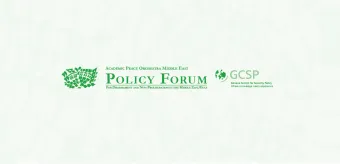Assessing the JCPOA from a Historical Perspective:

Assessing the JCPOA from a Historical Perspective:
Moving Beyond the Declaratory Policy of the 2004-2006 Initiative of a Gulf WMD-Free Zone
This Policy Forum issue analyses the 2004-2006 initiative to establish a sub-regional zone free of weapons of mass destruction (WMD) in the Gulf (GWMDFZ) as a tool to prevent Iran from becoming a nuclear-weapon state. The initiative’s gradual approach which aimed at the ultimate goal of encompassing the entire Middle East (including Israel) was innovative, and the assertive role of some smaller Gulf states in expressing their security concerns/interests and verification standards that Tehran would have had to meet was unprecedented. But the entire sub-regional idea remained confined to the declaratory level. In contrast, the Joint Comprehensive Plan of Action (JCPOA or greement/accord) – endangered as it currently is – struck between the E3/EU+3 and Iran exceeds some of the concerns of the earlier initiative, yet misses others. We conclude that new – and ultimately sustainable – regional forums as communication mechanisms are needed to tackle these issues without touching on the JCPOA. The challenges go beyond Iran and include the nuclear activities of the United Arab Emirates (UAE) and even more so of Saudi Arabia. Our Cooperative Idea emphasises that moving beyond the purely declaratory policy of the GWMDFZ initiative could also help to overcome the current stalemate regarding a zonal disarmament arrangement for the whole Middle East/Gulf region.
